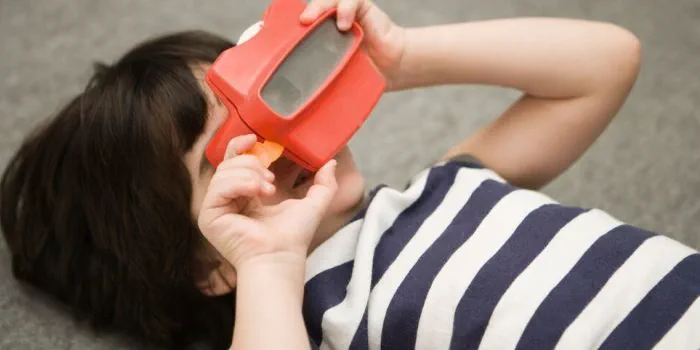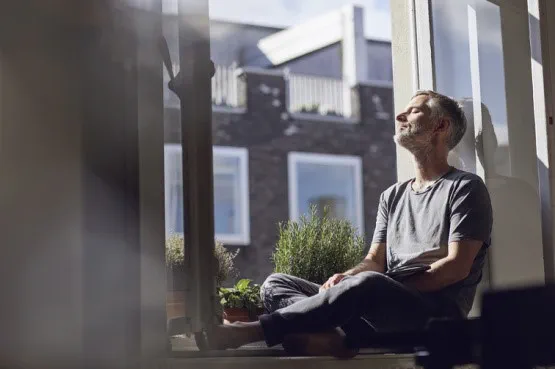Helping your child with anger issues
It can be very distressing if your child is showing signs of anger. While anger is a normal and useful human emotion, there are times when it might become a problem. Here I’ll explain what could be causing anger issues in your child, and how you can deal with it in a way that will help you both.

Are my child’s anger issues normal?
Like all your emotions, anger is normal. It helps you know when you’ve been hurt by something. It can also show you that you may need to make changes to deal with the situations that are affecting you.
You might feel anger if you are frustrated, feel powerless, lied to, or when you feel you’ve been treated unfairly. The same applies to your child. So most of the time if your child is angry, there could be a real reason behind it. But if your child’s anger is getting out of control and becoming harmful to themselves and others, there are ways to help your child manage it.
This is important because if you don’t address frequent, or excessive anger, it can lead to mental health conditions, such as depression and anxiety. Dealing with it early on is the best approach. And providing strong family support can really help children manage their feelings and behave in healthier ways.
What causes anger issues in a child?
As a parent, it’s natural to be upset and to want to understand why your child is angry. There can be a variety of reasons and triggers that can be different for everyone.
Some of the situations that can trigger anger in children include:
- problems at home – such as seeing other family members arguing
- falling out with a friend at school
- being bullied
- being afraid or anxious about something
- feeling misunderstood
- confusion about their emotions and being unable to express themselves
What are the signs of anger in your child?
Some of the signs that your child might need some help and support with their anger include the following behaviours. Some might be obvious and easily recognisable as aggressive behaviour – such as:
- shouting at you or other people
- breaking things
- hitting you or other people
Other expressions of anger can look a little different to what you might expect. For example, your child may show anger by:
- ignoring you or other people
- not talking to you or others
- not doing things you ask them to
- not wanting to go to school
- being sarcastic
- being sulky
Or you might be seeing signs that your child is turning their anger on themselves. They might be withdrawn, denying themselves nice things, or even self-harming.
What does anger feel like?
It can help to understand more about how your child is feeling when they experience anger.
There can be a range of physical and mental effects. When people get angry, they may:
- feel their heartbeat speed up
- have sweaty palms
- feel lightheaded or weak
- have a funny feeling in their tummy
- feel very tense, or they may shake
- need to go to the toilet too
These emotional effects can trigger feelings, such as resentment or guilt, feeling ashamed or very irritated.
As you child’s brain develops, they might have stronger emotions more often. The physical and mental effects can be difficult for children to process and cope with. For example, it can be frightening for them, especially for younger children who may not understand their feelings.
If you’ve noticed any of these signs, it’s important to get your child the support and help they need. If you think your child is hurting themselves, speak to your GP. And, if you’re worried about their immediate safety, call 999.
In terms of how to approach your child and talk to them about their anger, these are some techniques that can help.
How do you support a child with anger problems?
It’s important that your child feels supported when dealing with their anger. By working together, you can help your child understand that anger is the problem – not them. Here are four techniques that can help.
1. Stay with your child
Restore a sense of safety for your child by staying with them when they are distressed. You’ll show your child that they are not alone when they’re experiencing difficult feelings.
By doing this you can also support your child to use positive self-soothing techniques to help reduce feelings of frustration and anger.
2. Stay calm and in control
When your child shows signs of anger, they need to know that you understand how distressed they are. And if you can, find out the main cause of what’s upsetting them. When your child expresses anger, take a calm approach in helping them regain control over their feelings.
By encouraging your child to sit down and talk to you, you’ll help them to see that you are there to listen and provide support in helping them work through their distress in a safer way.
3. Plan ahead for challenges
Planning ahead can help to reduce challenging situations which may have caused anger in your child before. By identifying the situations that have previously caused your child distress, you can spend time thinking about how to manage them differently in the future.
An example is asking your child to stop an activity because you need to go out. By saying ‘In 15 minutes we will be going to be going to the shops, so you will need to stop what you’re doing at this time’ will let your child know what’s expected of them. It can help them feel more in control and stay calmer.
4. Give your child praise
Praising your child is extremely important as it plays a vital part in the development of your child’s confidence and self-esteem. Remember that the quality of the praise is much more powerful to your child than the quantity. Where you can, focus the praise on your child’s actions rather than solely on your child attributes.
For example, say: ‘You have done such a good job in putting your toy’s away, well done’.
How can you help reduce anger in young children?
Self-soothing techniques are effective in helping reduce anger in young children. The following techniques can be used both inside and outside of the family home.
Make a self-soothe box
Work together with your child to make a ‘self soothe box’. A self-soothe box is a box made up of items that your child can turn to at times of distress. Include items that your child will enjoy and engage with and things that soothes them during times of increased emotion.
Some examples may include colouring books, jigsaws, pictures of things which interest them, fidget toys, comforting toys or smells.
Use a worry jar
A worry jar can support younger children to manage their worries in a productive way. Make time in the day to talk about any worries that you have noticed in your child. This can encourage them to talk about worry in an open and honest way. Write the worry down and place it in a jar. Tell your child that now it’s been put in the jar, the worry has now been dealt with; it’s out of your child’s head and will stay in the jar.
Similar to this, are ‘worry monsters’ in which you encourage your child to let the monster eat the worry and get rid of it.
Keep a diary
A useful way to learn about your child’s behaviours is to keep a diary of any outbursts. Record times and dates, what happened before and after the outburst, what worked well and what didn’t work well in trying to calm your child.
This is a way to learn about the circumstances that led up to the angry outburst. It can help to identify any triggers or patterns in behaviours, which may help you to prevent, prepare for or manage future outbursts.
We now offer GP appointments for children under 18. Find out more about our Under 18 GP Service, call us on 0330 822 3072.
-
Sources Sources
- How to cope with anger. Mind. www.mind.org.uk, accessed 16 February 2023
- Anger. Young Minds. youngminds.org.uk, accessed 21 February 2023
- Anger/behavioural difficulties. Children and Adolescent Mental Health Services. camhs.elft.nhs.uk/conditions, accessed 21 February 2023
- Personal communication, Fatmata Kamara February 2023
- Responding to anger. Young Minds. youngminds.org.uk, accessed 21 February 2023
More mental health and wellbeing articles
Did you find our advice helpful?
We’d love to hear what you think. Our short survey takes just a few minutes to complete and helps us to keep improving our healthy lifestyle articles.
Legal disclaimer
This information was published by Bupa's Health Content Team and is based on reputable sources of medical evidence. It has been reviewed by appropriate medical or clinical professionals and deemed accurate on the date of review. Photos are only for illustrative purposes and do not reflect every presentation of a condition.
Any information about a treatment or procedure is generic, and does not necessarily describe that treatment or procedure as delivered by Bupa or its associated providers.
The information contained on this page and in any third party websites referred to on this page is not intended nor implied to be a substitute for professional medical advice nor is it intended to be for medical diagnosis or treatment. Third party websites are not owned or controlled by Bupa and any individual may be able to access and post messages on them. Bupa is not responsible for the content or availability of these third party websites. We do not accept advertising on this page.







